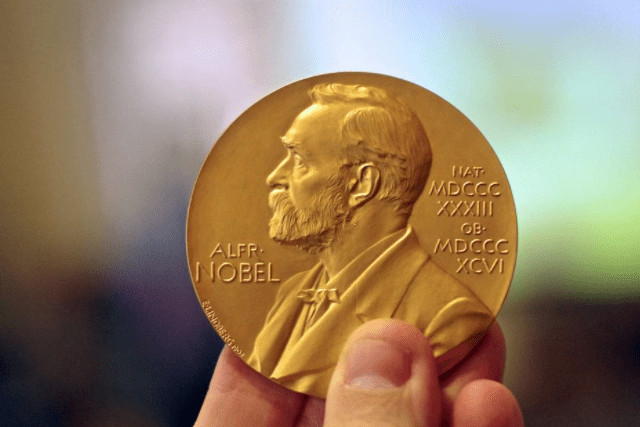The vice-chancellor, Brian Schmidt, has responded to ANU political refugee Wu Lebao’s request to speak out on the recent death of Chinese Nobel laureate Liu Xiaobo.
Liu Xiaobo, one of China’s most prominent democracy activists and intellectuals, died in hospital under the watch of police guards on 13 July after a battle with liver cancer. He was 61.
A key figure in the 1989 Tiananmen Square protests and a 2008 pro-democracy charter, he was awarded the 2010 Nobel Peace Prize, but had been imprisoned by China in response to the 2008 charter and was barred from receiving the award in person. An empty seat stood in his place at the ceremony.
Wu Lebao wrote to Schmidt on 14 July, urging him respond to Liu’s death. Exactly six years ago on 14 July 2011, Wu himself was arrested and later imprisoned for ‘fabricating or disseminating online rumours’ after associating with dissident artist Ai Weiwei and writing satirical tweets about the Chinese government.
Wu came to Australia in 2012 to escape China’s illiberal regime, and is in his second year as a mathematics undergraduate student at the ANU.
‘Standing for Liu Xiaobo is a contribution to democracy and freedom,’ Wu told Woroni.
Schmidt had earlier joined 153 Nobel laureates in signing an open letter in the weeks before Liu’s death, calling on the Chinese government to allow Liu Xiaobo and his wife Liu Xia to travel to the US for medical treatment.
In his reply to Wu, Schmidt expressed his sadness of the Liu’s death and his appreciation for Foreign Minister Julie Bishop’s call for the Chinese government to remove travel restrictions on Liu’s widow.
‘I’m deeply saddened to learn of the death of Lui [sic] Xiaobo. My thoughts are with his family and friends, and the many around the world who held him in great admiration,’ Schmidt wrote.
Both sides of Australian politics have called on the Chinese government to remove any travel restrictions on Liu Xia, who has been unofficially held under house arrest since his Nobel prize was announced. She has not been charged with any crime and concerns for her fate are growing.
Six years ago Wu was placed under house arrest following his detention, and the mental scars of his time in prison and the isolation he experienced while under house arrest still weigh heavily upon him.
Wu said that he appreciates Schmidt’s reply, but hopes that the ANU can do more to help his family, pointing out that in 2012 the blind Chinese activist lawyer Chen Guangcheng escaped China and took up a visiting fellowship at New York University.
‘I think that maybe ANU can do a similar favour for Liu Xia,’ Wu said.
Liu Xia has published books of poetry and photography, and is a prominent activist in her own right.
‘If Liu Xia can’t leave China in the following weeks I think she will definitely face long-term isolation and house arrest until the demise the of Xi or the regime.’
But Wu is aware that Schmidt and the ANU may not be entirely free to criticise and respond to Liu’s death.
‘There are many Chinese students in our university and a great financial benefit is brought by those international students. Professor Brian Schmidt wouldn’t like to irritate those Chinese students,’ he said.
While Wu is unafraid to voice his opinion on Liu’s passing, the Chinese Students and Scholars Association (CSSA), which calls itself ‘the only Chinese officially designated student association in Canberra’, did not respond to multiple requests for comment on Liu Xiaobo’s death.
Most Chinese have very little awareness of Liu Xiaobo and all mentions of Liu Xiaobo on the popular Chinese messaging app WeChat are immediately censored. WeChat has even deployed new technology to block images of Liu and empty chairs, referencing his Nobel prize ceremony, the first time such tactics have been observed.
A Woroni investigation last year revealed the CSSA’s close ties to the Chinese Community Party, with its president at the time forcing the university pharmacy to cease stocking copies of the Epoch Times, a newspaper opposed to the Party. And at a 2016 Chinese national day concert run by the CSSA, Wu Lebao and a Woroni reporter were followed throughout the evening.
We acknowledge the Ngunnawal and Ngambri people, who are the Traditional Custodians of the land on which Woroni, Woroni Radio and Woroni TV are created, edited, published, printed and distributed. We pay our respects to Elders past and present. We acknowledge that the name Woroni was taken from the Wadi Wadi Nation without permission, and we are striving to do better for future reconciliation.
